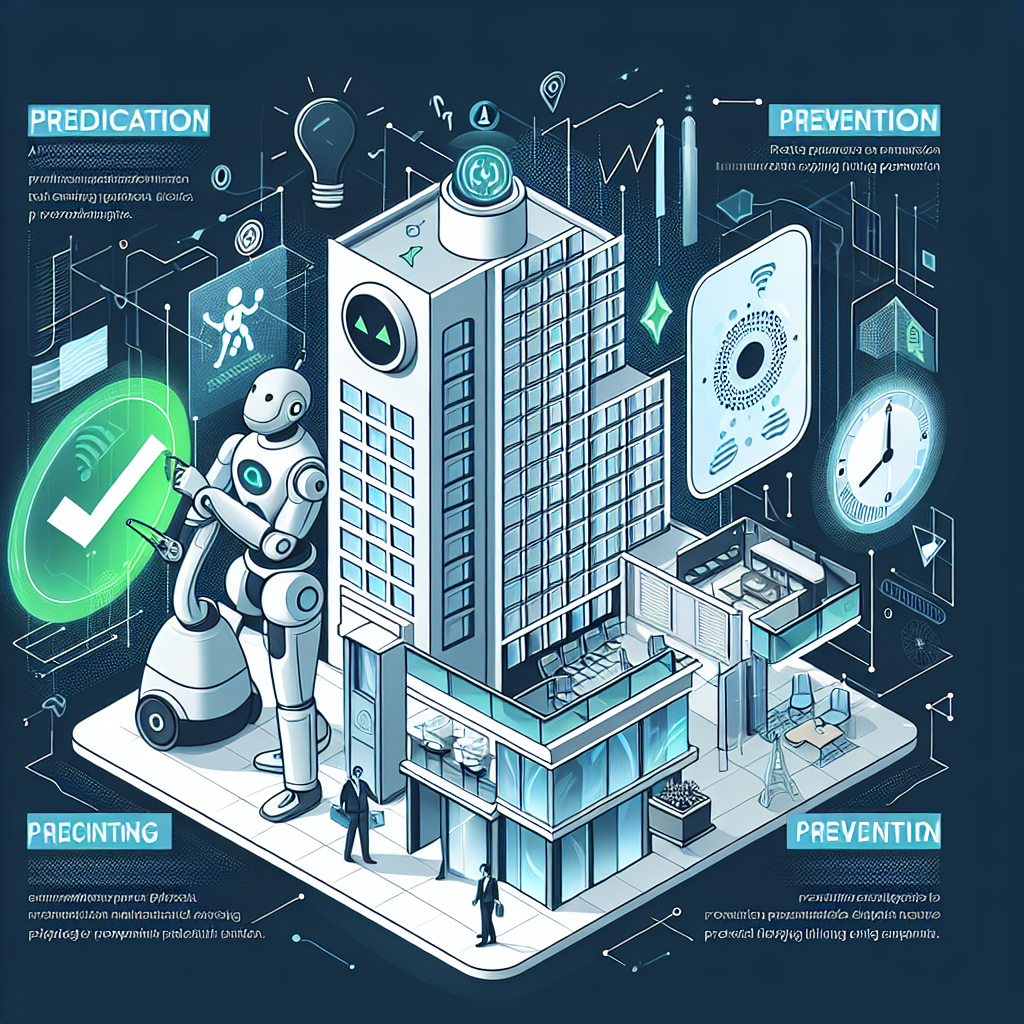In today’s fast-paced world, the hospitality industry is constantly looking for ways to improve efficiency and guest satisfaction. One area that is ripe for innovation is maintenance management. Hotels have a wide range of facilities and equipment that require regular maintenance to ensure they are in good working order. However, traditional maintenance practices can be time-consuming, costly, and reactive. This is where artificial intelligence (AI) comes in.
AI has the potential to revolutionize maintenance management in hotels by predicting and preventing maintenance issues before they occur. By analyzing data from sensors, equipment logs, and historical maintenance records, AI can identify patterns and trends that indicate potential problems. This allows hotel maintenance teams to take proactive measures to address issues before they escalate, reducing downtime and costs.
One of the key benefits of using AI for maintenance management in hotels is predictive maintenance. By analyzing data in real-time, AI can predict when equipment is likely to fail and schedule maintenance before it does. This reduces the risk of unexpected breakdowns and minimizes the impact on guests. In addition, AI can optimize maintenance schedules based on factors such as equipment usage, weather conditions, and occupancy levels, ensuring that resources are allocated efficiently.
Another advantage of using AI for maintenance management in hotels is improved asset performance. By monitoring equipment performance and identifying trends, AI can help hotels identify opportunities for optimization and upgrade. This can extend the lifespan of assets, reduce energy consumption, and improve overall operational efficiency.
In addition to predictive maintenance and asset performance optimization, AI can also streamline maintenance processes in hotels. By automating tasks such as work order generation, scheduling, and inventory management, AI can reduce administrative burden on maintenance teams and free up time for more strategic activities. This can lead to faster response times, improved service quality, and greater guest satisfaction.
Overall, using AI for maintenance management in hotels can result in significant cost savings, increased operational efficiency, and improved guest experience. As the technology continues to evolve, we can expect to see even more innovative applications in the hospitality industry.
FAQs:
Q: How does AI predict maintenance issues in hotels?
A: AI analyzes data from sensors, equipment logs, and historical maintenance records to identify patterns and trends that indicate potential problems. By using machine learning algorithms, AI can predict when equipment is likely to fail and schedule maintenance before it does.
Q: What are the benefits of using AI for maintenance management in hotels?
A: Some of the key benefits of using AI for maintenance management in hotels include predictive maintenance, improved asset performance, and streamlined maintenance processes. AI can help hotels reduce downtime, optimize resources, and improve operational efficiency.
Q: How can hotels implement AI for maintenance management?
A: Hotels can implement AI for maintenance management by investing in smart sensors, data analytics software, and machine learning algorithms. It is important to work with experienced AI vendors and consultants to develop a customized solution that meets the specific needs of the hotel.
Q: Are there any challenges to using AI for maintenance management in hotels?
A: Some of the challenges to using AI for maintenance management in hotels include data privacy concerns, integration with existing systems, and cost of implementation. It is important for hotels to address these challenges proactively and work with experts to ensure a successful deployment of AI technology.

